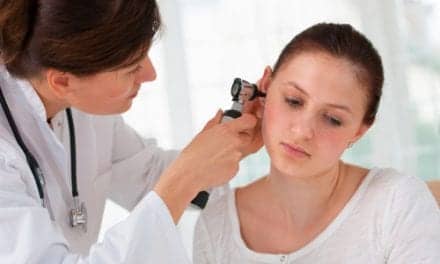
|
Let’s face it: hearing loss is the Rodney Dangerfield of disabilities—it doesn’t get any respect. We’ve become accustomed to watching news anchors, radio and TV talk show hosts, and other prominent personalities joke about hearing loss in the same way people joke about the weather: “It’s not really that big a deal, and so what if it is? There’s nothing you can do about it anyway.”
Of course, we know better. But so should they. No one would ever publicly make light of an individual who is blind or vision impaired and who cannot find their way around their home or see their loved ones; however, you continually find “funny” references to people with hearing impairment who make serious mistakes due to communication failures or who cannot interact on a level that corresponds to their intelligence and station in life. Hearing loss is too often attributed simply to “getting older”—as if presbycusis were not any more serious than wrinkles or age spots.
Dispensing professionals are in a unique position to tell the world that hearing loss isn’t funny or innocuous. Hearing loss is a serious, debilitating, chronic condition. While it’s true that some hearing loss may be attributable to aging (or a genetic predisposition), more recent findings have shown that it is also heavily influenced by the interactions of cumulative noise exposure and other environmental factors (eg, ototoxins).
May is Better Hearing and Speech Month (BHSM). It’s the prime opportunity each year for every dispensing professional to aggressively market their hearing care services. We work in a relatively small industry that has surprisingly few dispensing offices and practices (about 12,000 in the United States) to serve the 31.5 million people with significant hearing loss. That means the only way to effectively broadcast our message of hearing awareness—including hearing protection, hearing testing, amplification, and aural rehabilitation—is to shout in unison. We need to clearly advocate that: 1) Hearing loss is a serious problem that can negatively impact virtually every aspect of your life, including job performance, wages, love life, health, and family relationships; 2) If you think you have a hearing loss, get your hearing tested, and 3) There are very effective means to overcome hearing loss, including hearing aids, assistive devices, and implants.
How important is hearing health care? A report in last month’s JAAA concluded that “hearing aid use improves adults’ health-related quality of life by reducing psychological, social, and emotional effects of sensorineural hearing loss, an insidious, potentially devastating chronic health condition if left unchecked.” HR has published a number of studies that support this same conclusion. For example, the National Council on the Aging (NCOA) study, published by Sergei Kochkin and Carole Rogin in the January 2000 edition of HR, revealed that “hearing instrument users are likely to report improvements in physical, emotional, mental, and social well-being.” Another study by the Better Hearing Institute published in the October 2005 HR (available in the HR Archives) showed that hearing loss negatively impacts household income by up to $12,000 per year, depending on the degree of hearing loss.
It’s clear that hearing loss deserves more serious attention from the public, the medical field, and our government. Let’s get the word out and mobilize for Better Hearing and Speech Month!
Are you receiving HR‘s weekly The Insider? Although it has been e-mailed weekly to HR readers for over 6 months, some people have expressed surprise (and regret) when they find they haven’t been receiving The Insider. This newsletter has greatly expanded HR‘s news, research, products, and industry coverage. If you’re not getting it, please [register]sign up to receive your weekly update[/register].
|
Karl Strom |





